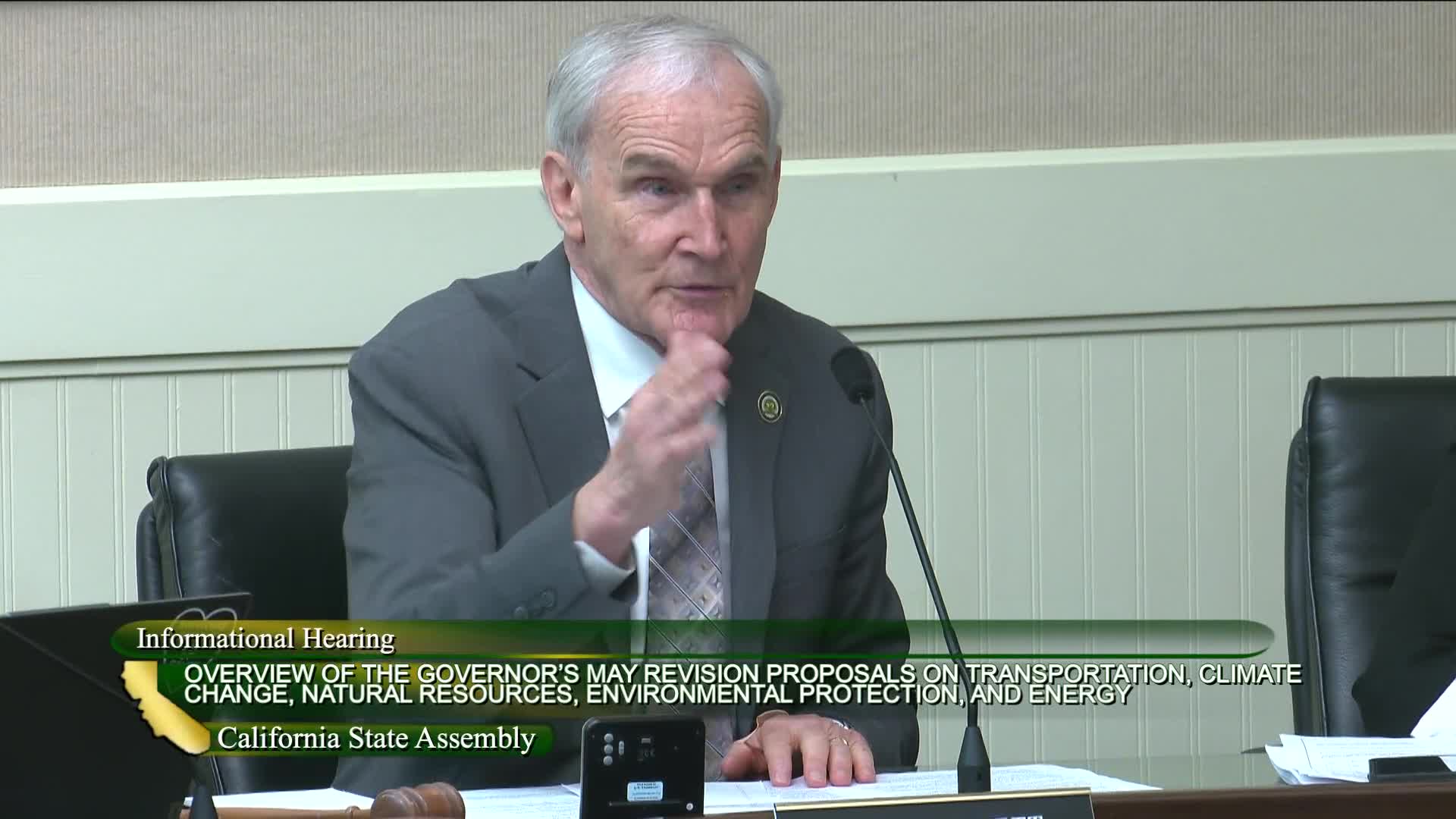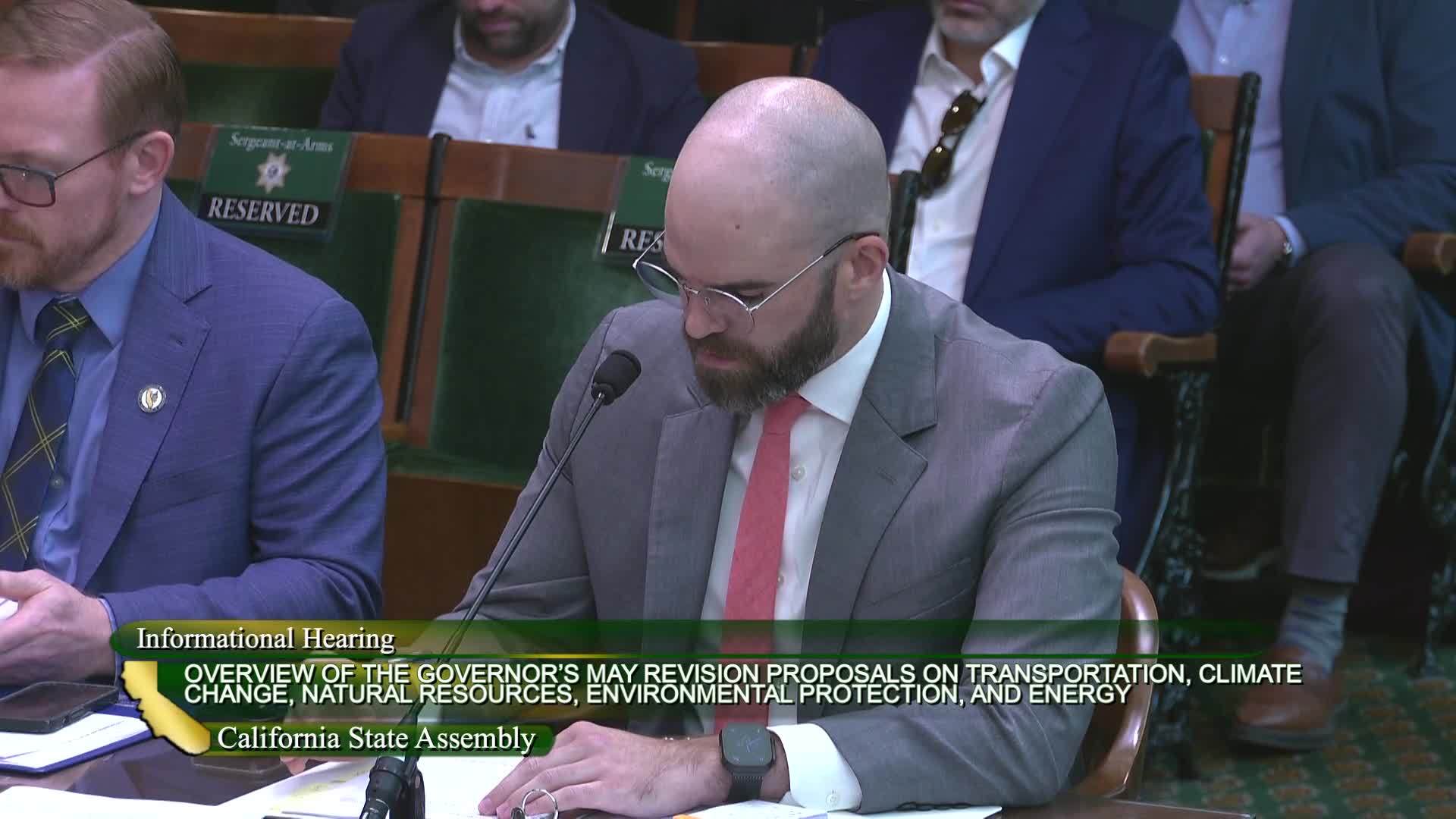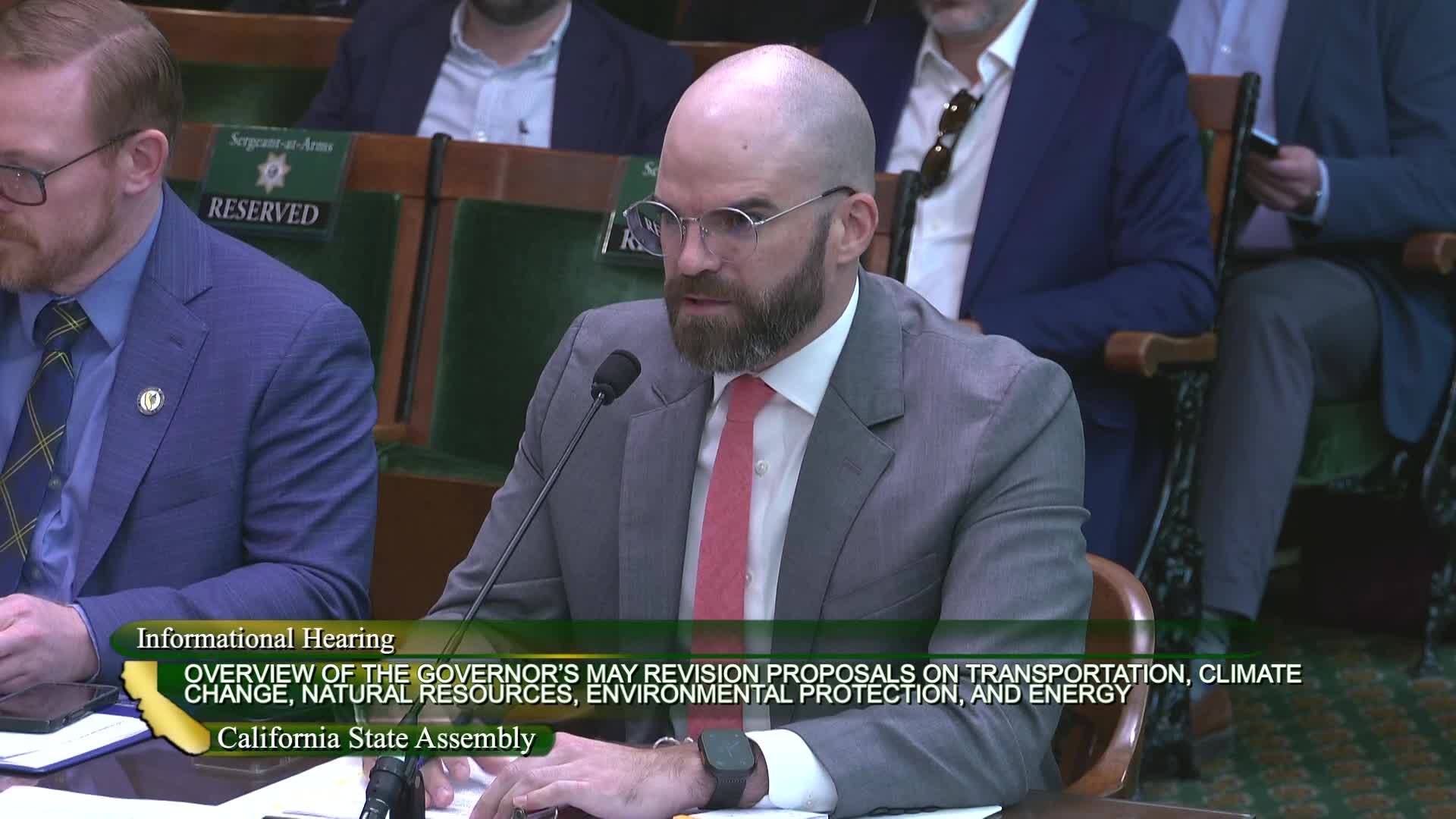Article not found
This article is no longer available. But don't worry—we've gathered other articles that discuss the same topic.

May Revision would extend 'cap-and-invest' to 2045 and shift $1.5 billion to Cal Fire; lawmakers and stakeholders warn of downstream cuts

May Revision trims and retools several environmental programs; proposes Exide funding reversion and Salton Sea investments

